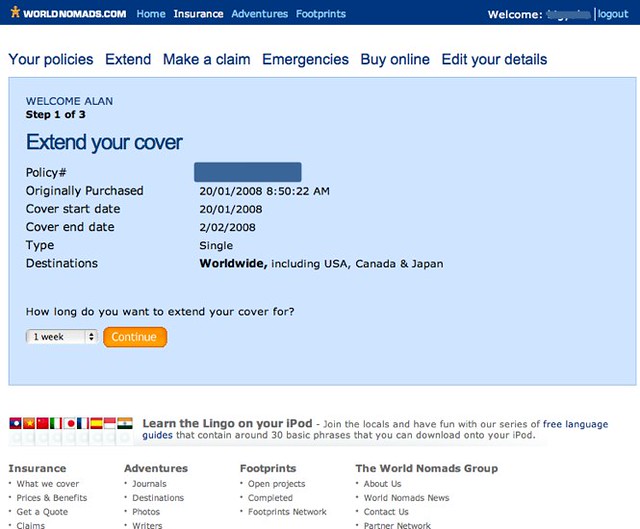Disability insurance for self-employed individuals provides financial protection in case of injury or illness. It offers income replacement and peace of mind for freelancers, entrepreneurs, and independent contractors who may not have access to traditional employer-sponsored coverage.
As a self-employed individual, you are responsible for your own disability insurance, and it’s crucial to understand the options available to protect your income and livelihood. We will explore the importance of disability insurance for self-employed individuals, the types of coverage available, and how to secure the right policy for your specific needs.
Whether you’re a sole proprietor, consultant, or small business owner, having disability insurance can safeguard your financial stability during unexpected health challenges.
:max_bytes(150000):strip_icc()/Primary-Images-best-disability-insurance-for-self-employed-5078961-6a3e0d9ab0244d07930046ffcfb71aeb.jpg)
Credit: www.investopedia.com
Table of Contents
Why Disability Insurance Is Crucial For Self-employed Individuals
Disability insurance provides crucial financial protection for self-employed individuals. Statistics reveal a significant risk of disability among self-employed individuals. Losing income due to disability can be devastating. It’s important for self-employed individuals to consider securing disability insurance to safeguard their financial well-being.

Credit: www.carter.care
Types Of Disability Insurance Available
Short-Term Disability Insurance: Provides coverage for a limited period of time, usually up to six months, and offers a percentage of your income if you are unable to work due to a temporary disability.
Long-Term Disability Insurance: Offers coverage for an extended period, often until retirement age, and provides a portion of your income if you are unable to work due to a long-term disability.
Social Security Disability Insurance: Government-run program that provides benefits to individuals with disabilities who have paid into the Social Security system.
Supplemental Disability Insurance: Can be purchased to complement existing coverage and fill in gaps in benefits, offering additional financial protection in case of disability.
Factors To Consider When Choosing Disability Insurance
Monthly Benefit Amount: When choosing disability insurance as a self-employed individual, consider the monthly benefit amount that will provide sufficient coverage in case of disability.
Elimination Period: The elimination period refers to the waiting period before benefits start. Evaluate the impact of a shorter or longer elimination period on your financial stability.
Benefit Period: Assess the benefit period offered by the insurance policy, ensuring it aligns with your needs in case of a long-term disability.
Definition of Disability: Understand the policy’s definition of disability and ensure it resonates with your occupation and potential risks.
Cost of Premiums: Consider the cost of premiums and find a balance between affordability and comprehensive coverage.
How To Apply For Disability Insurance
Applying for disability insurance as a self-employed individual involves researching and comparing different providers. It’s important to gather necessary documents and information, and then fill out the application and submit it. Additionally, you will need to undergo a medical exam and provide your medical records.
Tips For Making Disability Insurance More Affordable
Disability insurance is an important investment for self-employed individuals to protect their income in case of an unexpected injury or illness. However, it can be expensive. Here are some tips to make it more affordable:
- Choose a longer elimination period. This is the amount of time between when you become disabled and when your benefits start. A longer elimination period can lower your premium.
- Opt for a smaller monthly benefit amount. This can also lower your premium. Consider how much income you would need to cover your basic expenses.
- Consider a group disability insurance policy. These policies are often less expensive than individual policies and may offer comparable benefits.
- Shop around for the best rates. Compare policies and premiums from different insurance companies to find the best fit for your budget.

Credit: www.idlawcenter.com
Common Mistakes To Avoid When Purchasing Disability Insurance
When purchasing disability insurance as a self-employed individual, avoid common mistakes like underestimating coverage needs. Ensure the policy aligns with your occupation and income to safeguard against potential financial risks in case of disability. Research and compare different plans to make an informed decision.
| Common Mistakes to Avoid When Purchasing Disability Insurance |
| Not understanding the terms and conditions can lead to coverage gaps. |
| Underestimating monthly expenses may result in inadequate benefits during a claim. |
| It’s crucial to disclose pre-existing medical conditions to avoid claim denials. |
| Regularly reviewing the policy ensures it aligns with your current needs. |
Frequently Asked Questions
Is Disability Insurance Worth It For Self-employed?
Disability insurance is crucial for self-employed individuals to protect income in case of disability. It’s worth investing in for financial security.
Can Self-employed People Get Aflac?
Yes, self-employed individuals can get Aflac coverage, which offers various insurance options for independent workers.
Can Disability Insurance Be A Business Expense For Self-employed?
Yes, disability insurance can be considered a business expense for self-employed individuals. It provides income protection and can be deducted from taxable income.
Does Owning A Business Affect Disability Benefits?
Owning a business can impact disability benefits depending on income earned. Report earnings to Social Security.
Conclusion
Securing disability insurance as a self-employed individual is crucial for protecting your income and livelihood. By understanding the benefits and options available, you can safeguard your financial stability in the event of unforeseen circumstances. Make informed decisions to ensure peace of mind and a secure future.




